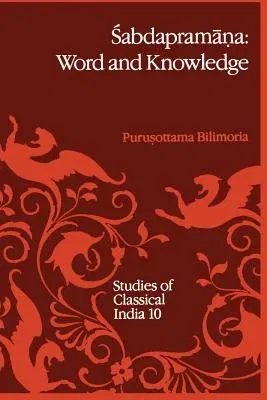P P Bilimoria
(Author)Śabdapramāṇa: Word and Knowledge: A Doctrine in Mīmāṃsā-Nyāya Philosophy (with Reference to Advaita VedāPaperback - Softcover Reprint of the Original 1st 1988, 22 October 2011

Qty
1
Turbo
Ships in 2 - 3 days
In Stock
Free Delivery
Cash on Delivery
15 Days
Free Returns
Secure Checkout
Part of Series
Studies of Classical India
Print Length
384 pages
Language
English
Publisher
Springer
Date Published
22 Oct 2011
ISBN-10
9401078106
ISBN-13
9789401078108
Description
Product Details
Author:
Book Edition:
Softcover Reprint of the Original 1st 1988
Book Format:
Paperback
Country of Origin:
NL
Date Published:
22 October 2011
Dimensions:
22.86 x
15.24 x
2.01 cm
ISBN-10:
9401078106
ISBN-13:
9789401078108
Language:
English
Location:
Dordrecht
Pages:
384
Publisher:
Series:
Weight:
512.56 gm

